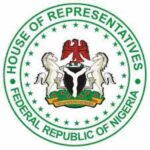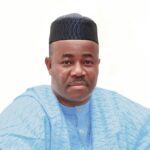In this piece, our correspondent, ABBANOBI-EKU ONYEKACHI examines the powers given to the Chief Executive Officer (CEO) of Standards Organisation of Nigeria (SON) by the law, in discharge of his duties, so as to deliver the mandate of the agency. He also peeps into the efforts of the newly appointed Director General (DG), Ifeanyi Okeke toward achieving the mandate of SON, being one of the agencies under the Federal Ministry of Industry Trade and Investment (FMITI). Excerpts
The Standards Organization of Nigeria (SON) was established by an Enabling Act Number 56 of December 1971 – the SON Cap 412 of the Laws of Federal Republic of Nigeria, with a commencement date of 1st of January 1970, when the Organization started to function. The Act has three amendments: Act No. 20 of 1976, Act No. 32 of 1984 and Act No. 18 of 1990 and Act No. 9 of 2004, which has been repealed and replaced with Act No. 14 of 2015.
The mandate of the Organisation includes preparation of Standards relating products, measurements, materials, processes and services amongst others and their promotion at National, Regional and International levels; certification of products, assistance in the production of quality goods and services; improvement of measurement accuracies and circulation of information relating to standards.
Having been established and passed through rigorous and well articulated laws, the SON, according the enabling laws, has the power to: organize test; investigate into the quality of facilities, materials and products; ensure reference standards for calibration and verification of measures and measuring instruments; register and regulate standard marks and specifications and; administer and enforce provisions of the Act, among others.
To effectively carry out the mandate of the agency, the person at the helm of affairs, the DG was empowered by the law to: among others enforce standards and quality control of products, science of measurement and all matters relating to metrology and; investigate quality of products.
According to the laws, the DG also has the power: to seize, seal, destroy or prohibit the sale of substandard products; to right of access to any premises, including all Nigerian Seaports, Airports and Borders where industrial or commercial undertaking is being carried out to perform her functions, while every officer of the Organization shall have the power, rights, privileges and protection, equivalent to that of a police officer.
Under the power invested on him by the laws, the DG has power of evaluation of quality assurance activities, including certification of systems, products and laboratories throughout Nigeria by:
Designation, establishment, approval and declaration of standards in respect of metrology, materials, commodities, structures and processes.Certification of products in commerce and industry throughout Nigeria on: Certification and conformity assessment scheme; Quality control of products, weights and measures; Matters relating to metrology, by ensuring reference standards for calibration and verification of measures and measuring instruments.
Among others were: Investigation of quality of products; Enforcement of standards, quality management, registration and regulation of standard marks and specification; Compilation of an inventory of products in Nigeria, requiring standardization; Establishment of an import and export product surveillance and; Establishment of a mandatory conformity assessment programme for locally manufactured products in Nigeria.
Added were: Registration and regulation of standards, marks and certification; Establishment and maintenance of laboratories ; Compilation of publication of scientific or order data; Sponsorship of national and international conferences; proffering professional advice to the federal or state government on specific problems, relating to standards specifications; Research and; Establishment of standard library.
In its mission, the SON is committed to delivering superior quality service and meeting the desires of its client and highest standard for the economy, and its strategy is built on understanding where they are now and where they need to be and also delivering the most relevant brands to meet differing preferences whilst retaining brand loyalty. We achieve these aims by continually taking the lead in product-Service innovation and quality initiatives.
On resumption in office, Dr. Okeke outlined his vision for SON, emphasising that “quality is a journey with no destination.” He envisions SON becoming a leading standardisation body in Africa and a prominent global organisation. His administration’s key priorities, according to him, include: Enhancing Standards Development, by rigorously developing and implementing standards in line with global best practices, fostering innovation and competitiveness within Nigerian industries; Strengthening Regulatory Enforcement, by enforcing standards as the core of SON’s mission, adding that it will be intensified to ensure that substandard and unsafe products do not harm citizens or harm the reputation of Nigerian products and services; Promoting International Trade, by this he intends to support Nigerian businesses in their efforts to compete effectively in the global market, fostering collaboration with industries and international partnerships to enhance the competitiveness of Nigerian products and; Embracing Technology: In an ever-evolving industrial landscape, technology plays a crucial role. Dr. Okeke will leverage technology to make SON’s operations more efficient, transparent, and adaptable to stakeholders’ needs.
According to him, his areas of priority attention, include: re-invigorated nationwide campaign against sub-standard products, growth and sustainability of Micro, Small, and Medium Scale Enterprises (MSMEs), development and proper utilization of SON metrology services and test laboratories across the country as well as stakeholders engagement and collaborations. Others are staff welfare and development, local products competitiveness in African Common Market, exports/ trade promotion, increase in the tempo of standardisation activities across the country, among others.
About a week of his appointment on 13th day of October, 2023, he emphasized his commitment to fostering job creation, poverty reduction, and increasing confidence in the export sector, for easier access to advanced laboratories for small and medium-sized enterprises, enabling them to enhance product quality and compete globally.
In an attempt to meet up with task before him, he informed that SON has concluded plans to roll out new standards in paint production by January 2024, adding that it would ensure strict compliance to the current requirement of 90ppm for lead free paints all over the world. The DG made the disclosure shortly after his resumption in office during a workshop on the Review Process of National Lead Paint Industrial Standards Labelling Requirement organised by Sustainable Research and Action for Environmental Development (SRADev Nigeria) in Lagos.
Dr. Okeke, who confirmed that SON is already reviewing the 2017, 2018 and 2019 current standards for paints, said: “We are driving to achieve lower values, so we are presenting the labeling requirement. For every product produced in Nigeria (not only paint) you must have a brand name, full trade mark, manufacturer’s name and location name and address, product statement of identity, the batch number, date of manufacture and expiry date, certification mark, function of the product, precaution and warning statement, list of ingredients, the description of the product, the colour of the paint must be clearly stated on the container, batch number and date of manufacture among others.
Represented by Mrs Tessy Ojomo, Deputy Director/Group Head Chemical Technology, Dr. Okeke in his goodwill message said: “The workshop organised by SRADev-Nigeria, (which witnessed major paint manufacturers from all the six geo-political zones of the country with government officials at the state and the federal levels in attendance) is of great interest to ensure health and safety in Nigeria with interest in the conduct of Lead Paint studies to obtain country-specific data, support for government in development and implementation of Lead Paint Standards and regulations and provision of technical assistance to help Paint Manufacturers switch to Lead free paints.
In his remarks, Jude Maduka, Executive Secretary, Paint Manufactures Association, who noted that no paint manufacturer intentionally adds lead in his production of paint, said: “Lead enters paint through lead laden materials, wither through lead dryer or through lead containing pigments.
“Replacing the dryer has not presented any challenge, but replacing the pigments has posed major challenges which are technical in nature.
Dr. Leslie Adogame, Executive Director of SRADev, disclosed that the awareness programme under the auspices of LEEP is in commemoration of 2023 International Lead Poisoning Prevention Week (ILPPW) between October 22 and 28, 2023, as set aside by the World Health Organisation (WHO).
Representing Muhammed Ali Pate, the Federal Minister for Health, Mrs. Adeola Olufowobi Yusuff said: “Lead is a poisonous or hazardous chemical causing poisoning in human. Human exposure to hazardous chemicals in products like lead in paints, electrical bulbs, food stuff, water, batteries, children’s toys etc are the concern of the Federal Ministry of Health and Social Welfare and hence to ensure that lead and lead products are eliminated.



